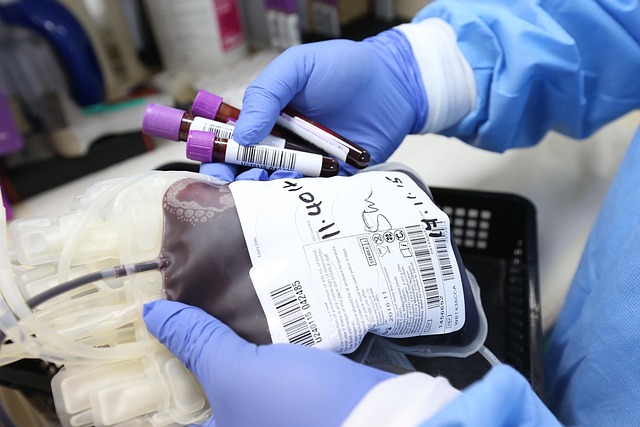About Pneumonia Shots for Seniors and Their Possible Side Effects
Pneumonia shots play an important role in senior healthcare, but many have questions about timing, options, and side effects. This article explains the main pneumonia vaccine options for seniors, how often shots may be needed, and possible side effects to be aware of.

Why Seniors Should Consider Getting Vaccinated Against Pneumonia
Seniors face elevated pneumonia risks due to age-related immune system changes and potential underlying health conditions. The immune system naturally weakens with age, making it harder to fight off bacterial and viral infections that cause pneumonia. Adults 65 and older are also more likely to have chronic conditions like diabetes, heart disease, or lung disorders that further increase pneumonia susceptibility.
Pneumonia vaccination significantly reduces hospitalization rates and severe complications among seniors. Studies show that vaccinated older adults experience fewer pneumonia-related emergency visits and shorter recovery times when respiratory infections do occur. The vaccines provide protection against the most common pneumonia-causing bacteria, particularly Streptococcus pneumoniae, which accounts for a substantial portion of serious pneumonia cases in older populations.
What Are the Main Pneumonia Vaccine Options for Seniors
Two primary pneumonia vaccines are recommended for adults 65 and older: PCV13 (Prevnar 13) and PPSV23 (Pneumovax 23). PCV13 protects against 13 types of pneumococcal bacteria and provides stronger, longer-lasting immunity. This conjugate vaccine works by attaching pneumococcal proteins to carrier proteins, creating a more robust immune response.
PPSV23 covers 23 different pneumococcal bacteria strains, offering broader protection but potentially shorter-duration immunity. This polysaccharide vaccine contains purified capsular material from pneumococcal bacteria. Healthcare providers typically recommend both vaccines for seniors, administered in a specific sequence to maximize protection against the widest range of pneumonia-causing organisms.
The vaccination sequence usually involves receiving PCV13 first, followed by PPSV23 at least one year later. Some seniors may have already received PPSV23 before age 65, in which case the timing recommendations may differ. Healthcare providers assess individual vaccination histories to determine the most appropriate schedule.
How Often Should One Take a Pneumonia Shot and Why
Most seniors need only one dose of PCV13 in their lifetime, as this vaccine provides long-lasting immunity. However, PPSV23 may require a booster dose after five years, depending on individual risk factors and health status. Adults with certain chronic conditions, compromised immune systems, or other high-risk factors might need additional PPSV23 doses.
The timing between pneumonia vaccines is crucial for optimal effectiveness. Healthcare providers space the vaccines appropriately to prevent interference between different vaccine components and ensure maximum immune response. Receiving vaccines too close together can reduce their effectiveness, while waiting too long may leave gaps in protection.
Regular healthcare visits help determine if booster shots are necessary based on changing health conditions, new medical research, or updated vaccination guidelines. Seniors should maintain vaccination records and discuss their pneumonia vaccination status during routine medical appointments.
Common Side Effects of the Pneumonia Shot Explained
Pneumonia vaccine side effects are generally mild and resolve within a few days. The most common reactions include pain, redness, or swelling at the injection site, affecting approximately 60-70% of vaccine recipients. These local reactions typically peak within 24-48 hours and gradually subside without treatment.
Systemic side effects may include mild fever, fatigue, muscle aches, or headache, occurring in about 10-20% of vaccinated individuals. These symptoms usually appear within the first day after vaccination and resolve within 2-3 days. Taking over-the-counter pain relievers like acetaminophen or ibuprofen can help manage discomfort.
Some people experience temporary decreased appetite or mild nausea following pneumonia vaccination. These digestive symptoms are typically brief and don’t require medical intervention. Staying hydrated and eating light meals can help minimize these effects.
Possible Side Effects of the Pneumonia Shot Seniors Should Know
While serious adverse reactions are rare, seniors should be aware of symptoms that warrant medical attention. Severe allergic reactions (anaphylaxis) occur in fewer than one in a million doses but require immediate medical care. Signs include difficulty breathing, facial swelling, widespread rash, or rapid pulse.
High fever above 101°F (38.3°C) persisting beyond 48 hours after vaccination should be evaluated by healthcare providers. Similarly, injection site reactions that worsen after the first few days or show signs of infection (increasing redness, warmth, pus) need medical assessment.
Seniors with compromised immune systems may experience different or prolonged side effects compared to healthy older adults. Those taking immunosuppressive medications or managing chronic conditions should discuss potential side effect variations with their healthcare providers before vaccination.
Some seniors worry about vaccine ingredients causing adverse reactions. Both pneumonia vaccines are preservative-free and don’t contain live bacteria, making them safe for most older adults. However, individuals with severe allergies to vaccine components should inform their healthcare providers before vaccination.
This article is for informational purposes only and should not be considered medical advice. Please consult a qualified healthcare professional for personalized guidance and treatment.
Pneumonia vaccination remains one of the most effective preventive measures available to seniors for reducing respiratory infection risks. Understanding the available vaccines, recommended schedules, and potential side effects empowers older adults to make informed healthcare decisions. While side effects can occur, they are typically mild and temporary compared to the serious complications that pneumonia itself can cause in older populations. Regular communication with healthcare providers ensures that seniors receive appropriate vaccinations based on their individual health profiles and risk factors.




